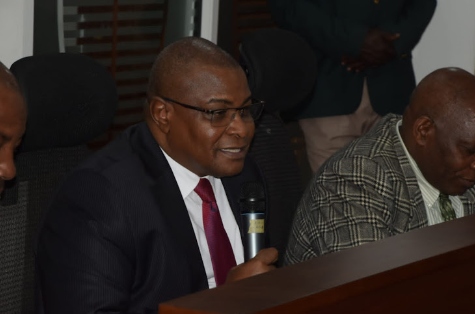MPs have escalated their investigation into tax exemptions amounting to billions of shillings granted to Blue Nile Rolling Mills, despite the company allegedly failing to meet the required threshold. New evidence presented to the MPs indicated that the firm received these benefits without any proof of fulfilling the agreement.
Officials from the National Treasury, who appeared before the Committee on Delegated Legislation, struggled to justify the 2020 decision to grant these irregular tax exemptions. Musa Kathanje, the National Treasury’s director of macro and fiscal affairs and representative of PS Chris Kiptoo, could not provide an estimate of the losses incurred by the Kenya Revenue Authority (KRA) as a result of the deal.
“The tax incentives for Blue Nile Rolling Mills Limited were granted in 2020, with the expectation that the firm would create jobs and boost exports,” said Kathanje.
Committee chair and Ainabkoi MP Samuel Chepkong’a asserted that Blue Nile, which operates under the Special Operating Framework Arrangement (SOFA), was illegally granted tax exemptions.
The SOFA agreement, signed between Blue Nile and the government in 2020, allows the company to avoid paying Corporate Income Tax for up to 10 years. Additionally, it provides exemptions on Value Added Tax, Import Duty, Import Declaration Fees (IDF), and Railway Development Levy (RDL) on raw material imports for a decade—an agreement that many manufacturers have criticized for destabilizing the steel industry.
Documents presented to the committee indicated that the tax relief was awarded unlawfully, as the institution responsible for developing and passing laws to implement the tax exemptions was not involved.
It was revealed that the gazette notice the officials relied on had not been domesticated and had yet to be placed under the EAC Act.
“You have made reference to some gazette notice that was signed, where is that gazette notice, is this act an Act of Parliament of Kenya,” asked the chair.
It emerged that the document relied on by the Treasury officials was not domesticated and was not aligned to the East African Community Act.
“Article 2 of our Constitution recognises international treaties which is fine and you have one from Tanzania, but there is a process we just don’t adopt them in a blanket manner, they have to pass through Parliament to be domesticated so that is where we are coming from,” said Nyando MP Jared Otieno.
“Where did Kenya domesticate what you have presented before us, otherwise it is not recognised in Kenya?”
Questioned were also raised on why with every review of the finance laws, the provisions were reviewed to suit specific companies.
From the session it emerged that last year alone, the government spent over Sh400 billion in tax exemptions, which were a direct charge to the taxpayer prompting the government to employ additional taxation measures to meet its demands.
“”It is clear that you do not have the necessary details or the comprehensive answers we require. As a committee, we want to meet with PS Chris Kiptoo in person to obtain the answers we need regarding the Blue Nile Rolling Mills SOFA deal,” said Chepkong’a.
When committee members questioned how much Blue Nile had benefited from tax exemptions, the Treasury officials redirected the inquiry to the Kenya Revenue Authority, despite previously claiming to have the figures.
They also lacked documentation to support their assertions that the company had met all the requirements necessary for receiving the Special Operating Arrangement.
The officials struggled to provide detailed information about the agreement, including the specific amount of tax relief granted. Additionally, they were unable to explain how the agreement with Blue Nile had benefited the country, as their claim that the company had ring-fenced the export of galvanized wires was unsubstantiated due to a lack of relevant documentation.
“For a company to be awarded the SOFA arrangement, majority of the employees must be of Kenyan origin, the officials that came before the committee claimed that the company had 1,000 employees, however evidence has shown that only 300 were Kenyans,” reads part of the submissions.
Moreover, the company is required to maintain an operating capital of Sh10 billion, but Blue Nile was seemingly favored with a stated capital of only Sh2.5 billion.
The committee inquired about the advisory opinion issued by the Office of the Attorney General, as it appeared there might have been collusion between unnamed Treasury officials and their counterparts in the State Law Office to provide a biased opinion that benefited a select few individuals.
The Ainabkoi MP, while requesting the statement, expressed concern that the actions of a few government officials had jeopardized the sustainability of the local steel production industry, giving undue advantage to certain competitors.
Further concerns were raised regarding the impact of these actions on taxpayers, especially at a time when the Kenya Revenue Authority (KRA) is struggling to close a deficit exceeding Sh370 billion. The committee requested an additional two weeks to investigate the operations of the steel company and any other companies that may have illegally benefited from tax exemptions over the years.



